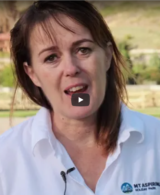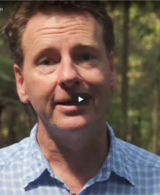Industry insights – Mark Orbell
Mark Orbell Ridgeline Adventures in Wanaka
Importance of effective communication
Using simple key phrases in visitors’ own language
Website in different languages
Tour resources in visitors’ language
Customising payment system to suit customer needs
Adapting the product and service to suit the market
My name is Mark Orbell and I own and operate Ridgeline Adventures in Wanaka.
We are offering the chance to get on to a working high country station that locals can’t even come to. So it’s really authentic and special.
We’re getting a lot of Taiwanese, we’re getting a lot of Singaporeans, East Coast Chinese and a few out of Thailand as well. You do pick up a number of different languages as you are driving with your customers obviously. You get to learn a few key phrases that really help out and can make someone’s day if you greet them in their language or say ‘pyou yan’ isn’t that an amazing view and which means beautiful view and people really respond to that. We have French and Japanese and Mandarin translated on our websites.
We also have for a number of other tours, we have translated information sheets, A4 sheets that they can refer to as they’re going along, and it all adds to the experience.
The strategies that we’ve implemented most recently is a GPS system whereby commentary is translated through stereo our systems in our vehicles and it’s translated into the language of the customer we have at the time and it’s GPS located so as we drive around it pings a certain area when you reach it and it plays that portion of your speech.
You play it while you’re driving along and you look in the mirror and you see the expressions and you see them nodding and then those that can speak English you ask them, Did that makes sense and did you enjoy that?
‘Oh yes very very interesting thank you thank you’. So they’re getting a much more in-depth experience.
If you can have translations, if you can have written information then do it, by all means do it.
And make sure you get someone who knows the tourism industry to do the translation for you.
Because that’s really important, because they’ll get the nuances of how you’re talking and what you’re actually, you’re point you’re trying to put across. And if it’s done right it’s just like me talking to you now that’s really simple. We’ve joined up with Alipay to make it really easy for Chinese to pay for a number of different products of ours.
We have Manuka honey that we produce out here on this farm that we actually take the customers to the Manuka trees and they see the flowers they see the trees and then we taste the honey and then they can buy it just by scanning the QR code into their phones and away they go. It’s so easy. There’s no need for the customers to worry about carrying money and it’s just done – it’s just finding a provider and they provide you with all the the QR codes and we’ve got them stuck to the mirrors of our truck so it’s easy just to scan and it makes it really easy and simple.
We need to be mindful and adjust our product to suit. We don’t want to step away from our core focus which is what we offer here but if you can just add little things that can add to their experience it doesn’t take anything away from this or the experience they get out here but they will benefit by taking away an authentic experience in New Zealand which has been lacking in big tourism business. It’s just by the sheer scale and size that’s been lacking a lot and so we’re here providing that authenticity.







